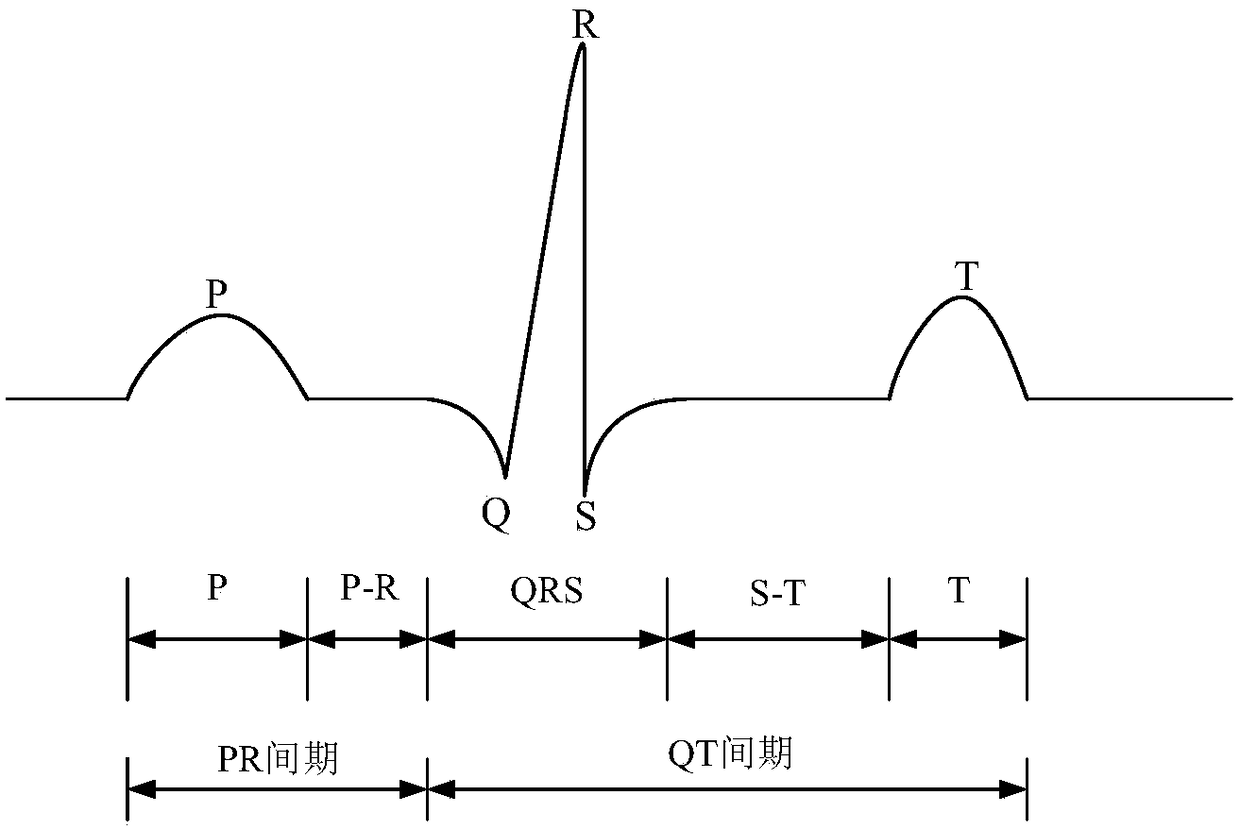Ventricular fibrillation detection method, storage medium and device
A detection method and technology for ventricular fibrillation, applied in the field of signal processing, to achieve the effect of accurate identification and improvement of the success rate of defibrillation
- Summary
- Abstract
- Description
- Claims
- Application Information
AI Technical Summary
Problems solved by technology
Method used
Image
Examples
Embodiment 1 Embodiment 2
[0062] Example as Figure 5 shown.
[0063] Step 201: sequentially extract the RR intervals in the ECG signal data, and store the newly extracted RR intervals into the newly recorded RR interval sequence;
[0064] Step 202: When the newly recorded RR interval sequence is not empty, take out the RR intervals in the newly recorded RR interval sequence sequentially, and when the RR intervals taken out continuously within the first preset duration are in the abnormal range, the probability is greater than the second preset value, execute step 203;
[0065] Step 203: Identify the waveform characteristics of the ECG signal data for the first preset time period. If the waveform characteristics conform to the preset oscillation state, execute step 103; otherwise, determine that no ventricular fibrillation is detected, and return to step 202.
[0066] Step 103: Calculate the complexity of the ECG signal data for the first preset duration, and determine whether the complexity is great...
Embodiment 3
[0080] Embodiment three and embodiment four
[0081] Embodiment three such as Figure 7 shown.
[0082] Step 301: sequentially extract the waveform features in the ECG signal data, and store the newly extracted waveform features into the newly recorded waveform feature sequence;
[0083] Step 302: When the newly recorded waveform feature sequence is not empty, sequentially extract the waveform features in the newly recorded waveform feature sequence, and when the continuously extracted waveform features within the first preset duration conform to the preset oscillation state, then perform step 303;
[0084] Step 303: Extract the RR interval of the intracardiac signal data of the first preset time length, if the probability of the RR interval being in the abnormal range is greater than the second preset value, then execute step 103, otherwise it is determined that no ventricular fibrillation is detected, and return to step 302 .
[0085] Step 103: Calculate the complexity of...
Embodiment 4
[0086] Embodiment four such as Figure 8 shown.
[0087] Step 301-2: Sequentially extract the waveform features in the ECG signal data, store the newly extracted waveform features into the waveform feature sequence, and the newly extracted waveform features are unanalyzed waveform features in the waveform feature sequence;
[0088] Step 302-2: When the unanalyzed waveform features in the waveform feature sequence are not empty, read the unanalyzed waveform features sequentially, and convert the unanalyzed waveform features into analyzed waveform features after being read. If the waveform characteristics read continuously within the preset time period conform to the preset oscillation state, then step 303-2 is executed;
[0089] Step 303-2: Extract the RR interval of the ECG signal data of the first preset time length, if the probability of the RR interval being in the abnormal range is greater than the second preset value, then perform step 103, otherwise it is determined tha...
PUM
 Login to View More
Login to View More Abstract
Description
Claims
Application Information
 Login to View More
Login to View More - R&D
- Intellectual Property
- Life Sciences
- Materials
- Tech Scout
- Unparalleled Data Quality
- Higher Quality Content
- 60% Fewer Hallucinations
Browse by: Latest US Patents, China's latest patents, Technical Efficacy Thesaurus, Application Domain, Technology Topic, Popular Technical Reports.
© 2025 PatSnap. All rights reserved.Legal|Privacy policy|Modern Slavery Act Transparency Statement|Sitemap|About US| Contact US: help@patsnap.com



